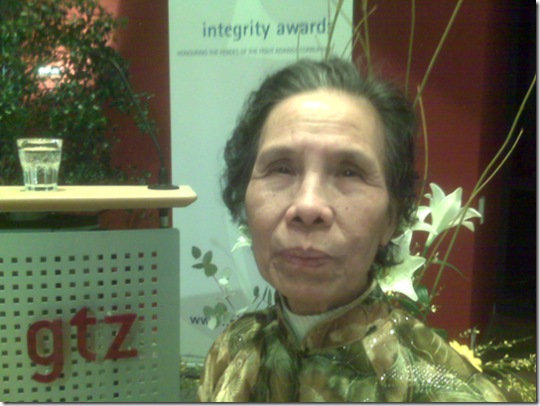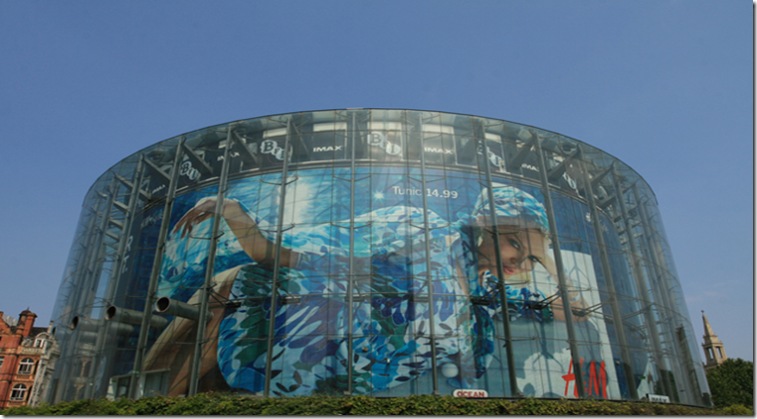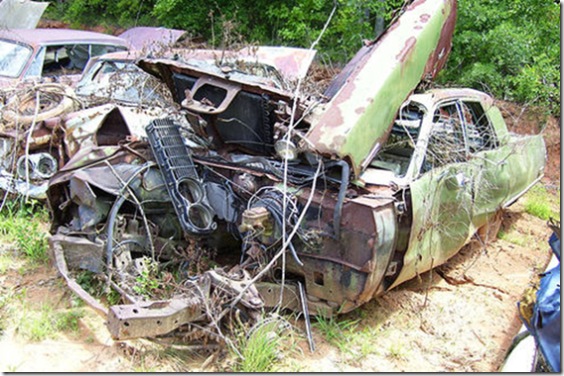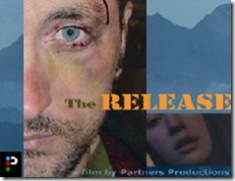This week I had the distinct honour to visit Nigeria and share a panel with the Minister for Finance, Shamsuddeen Usman at the Economist Roundtable with the Government of Nigeria. It was also a real pleasure to meet the SAP West Africa team who are running a thriving business led by Olayemi Keri out of the Abuja office.
These are exciting times for Nigeria and not only because of current high oil prices but because the rest of the economy at last seems to be on the move. This is critical if Nigeria is to escape the problems associated with the so called resource curse. Though there are significant constraints in the economy – namely security in the Delta region, infrastructure & education – still, Goldman Sachs estimates that Nigeria is currently on target to be within the global top 25 economies by 2020. Further, Goldman Sachs has identified Nigeria as the only sub sub Saharan Africa in its N11 list, the next eleven countries of high economic potential after BRIC markets. With this prediction Nigeria has the potential to quickly eclipse South Africa as the continents major economic force.
It surprises me that yet many of the experts don’t seem to get the structural changes that are taking place under our feet in the global economy. Jason Busch for example created quite a lively discussion with this blog post where he essentially writes off all prospects of economic development in Africa. BRIC and developing markets are not just a source of cheap supply of goods and services for western markets. I think the changes we are seeing with the rapid development in BRIC and N11 countries is more fundamental and we have to look beyond on our own western bias to understand them.
Proctor & Gamble seem to have no such difficulty spotting the opportunities in Africa. Last month P&G announced a $3bn investment in manufacturing facilities in Nigeria to supply the West Africa region. Coca Cola has invested Naira 10bn in Nigeria between 2000 and 2007. Beyond consumer products, financial services and telecommunications sectors are also really taking off.
The stock market grew year on year by over 50% measured as of Q3 2007. Deregulation in the telco sector has also led to rapid development here. Teledensity increased from just 0.73% of the population connected in 2001 to 28% connected in 2007 with more than 1 million subscribers being added to the network each month. Nigeria’s total population is 140 million people. In 2006 Nigeria achieved it’s first sovereign credit rating from S&P & Fitch and foreign direct investment increased by 60% between 2004 and 2006.
China is flooding the place with development dollars and cheap goods. Interestingly as communists they don’t seem to have a political agenda, just hungry for markets. The Nigerians seem ambivalent, the local industrial sector has a hard time competing but the government does enjoy the political power having a more diverse and balanced portfolio of foreign investment.
GDP grew 6.5% in 2007 and per capita income is steadily rising to create the emergence of a middle class. Corruption is still pervasive but the anti corruption drive led by the Economic & Financial Crimes Commission has been politically popular and so the focus on this issue will remain. (I recommend a visit to the EFCC web site). On thiss issue and others the press is lively and open.
But I don’t want to be too effusive, there are real issues for investors in Nigeria. The government seems distracted by legal challenges to the recent general election results, crude oil production fell by 4.9% in 2007 due to the security situation in the Delta region, electricity production is woefully inadequate to demand. Worryingly, the EFCC chief was recently sent on ‘study leave’ but this seems to be more of a local political issue than any serious signal that the government has gone soft on corruption. Poverty alleviation is a major challenge, with life expectancy of about 50 years, life remains tough. The domination of oil on the economy is a problem, it can lead to run away inflation, a temptation for fiscal indiscipine. For citizens, many of whom remain outside the tax net, the role of government becomes one of an ‘allocator’ and this leads to a stilted view of participatory democracy and government accountability.
On the panel I shared with the Finance Minister, he outlined his seven point plan including:
- Power & Energy – development of the national infrastructure
- Food Security and Agriculture – getting Nigeria production to commercial scale (Nigeria imports a lot of food)
- Wealth Creation & Employment – particularly through economic diversification and development of the mineral and agricultural sector (oil and gas doesn’t generate much local employment)
- Mass Transportation – necessary infrastructural development
- Land Reform – to enable more commercially viable farms and boost production (BTW, ever wondered what happened the white Zimbabwean farmers dispossessed by Mugabe’s land reform? The Nigerian government, recognising their requisite skill, offered them land and a new start in Nigeria)
- Security – maintaining law and order, especially in the Delta
- Qualitative and Functional Education – absolute poverty and illteracy is high
The government has gone sort of quiet recently as it gets back to basics of detailed planning after the administration change with the 2007 elections. The Finance Minister on the one hand was a little defensive about this saying something to the effect that people did not understand, media manipulation etc, but we would soon see more detail. On the other hand he was sincere in his view that the Finance Ministry in the past had wasted a great deal of money due to poor project conceptualisation, planning and execution. For example this week in the local newspapers he was reported to say that the previous administration had spent USD$10 billion on power infrastructure and had little to show for the efforts. He also spoke of similar examples of state funded efforts to ignite the local sugar industry.
On the corruption question he was forthright, he said (i) corruption often comes about through poor public project management, or at least there is a fine line between corruption and poorly negotiated & managed contracts and (ii) now that the government has spent many years cleaning up it’s own house he would also like to extend focus to the bribe payers. He said he would soon announce an initiative and invite the private sector to participate. I suspect this could be a new trend emerging where emerging markets somewhat jaded by poor performance on international indices such as the Transparency International Corruption Perception Index rightly are shifting more of the share of responsibility to the supply side of the bribery equation. The government last month, at the order of the President, suspended all business dealings with Siemens, pending investigations of allegations that Siemens bribed public officials. I suspect pressure will begin to mount on the international banking sector to take tougher measures to prevent the corrupt from moving embezzled funds off shore. Thus we could see some new angles of risk for GRC management as we know it.
The minister said he ‘liked’ my presentation on IT led innovation and how it can help public sector reform and development in a constrained economy like Nigeria. I think he recognises well the need for the government to deliver on the democracy dividend in Nigeria and he sees IT as key enabler to accelerating these changes. Compared to any western government ministry the level of dificulty of his job is exponentially more difficult. He seems dedicated to carrying out his work with a good measure of integrity, just look at his full declaration of assets as it appears on the ministry website. I could find no such declarations on the UK Treasury site for Alistair Darling or the US Treasury site for Hank Paulson for that matter.
Nigeria is an exciting place, full of intrigue and entrepreneurship, but faces immense challenges. But don’t take it from me, read this excellent round up from the FT. I think it has a somewhat tarnished reputation that deserves a second consideration. As I said in comments to Jason’s blog post, these markets are not for the faint hearted but they do reward handsomely. Free enterprise really should not be too afraid of risk and in the case of Nigeria, it will be the doubters and risk averse in cosy corporate offices in Europe and North America that may the ones that will loose out.
Technorati Tags:
Nigeria,
CSR,
sustainability,
corporate citizenship,
Corruption,
Transparency International,
SAP,
Jason Busch,
Economist Intelligence Unit,
Goldman Sachs,
governance,
risk,
compliance,
GRC










